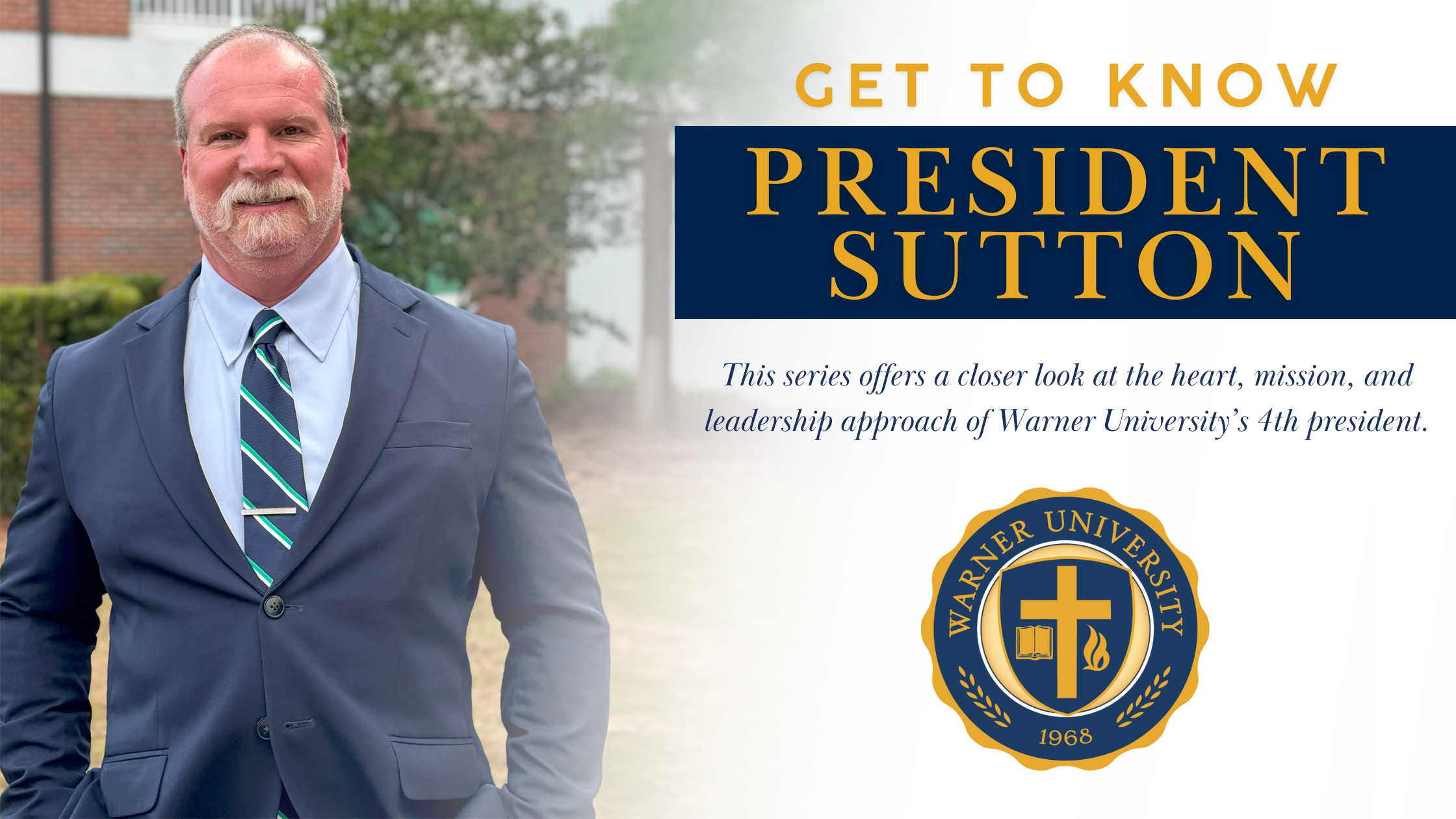Week 1: “Why I Said “Yes” to Warner”
When I was looking to make a career change back in 2018, Warner University took me by surprise. As an alumnus of a sister institution within the Council for Christian Colleges and Universities (CCCU), and as someone who had spent most of his career in Christian higher education, I thought I was familiar with pretty much every Christian university in the country, especially those within the CCCU. But I was wrong: I had never heard of Warner University. However, as I read the position advertisement for Vice President of Academic Affairs & Chief Academic Officer, I sensed that I might have stumbled onto a gem of an institution.
On principle, I had decided to apply only at institutions that had a high view of Scripture publicly stated on their website and in other literature. Warner University was not only clear and bold about its position on Scripture, it was thoughtful in a way that I had seldom seen, calling attention to its “grammatical-historical” approach to the Bible. For those who might be unfamiliar with this term, it simply refers to the notion that we are capable of understanding the grammar and vocabularies of the biblical languages and that we can utilize that understanding to determine, if imperfectly at times, what God was communicating to the original audiences when the biblical texts were first penned. This clarity excited me because a commitment to the grammatical-historical interpretation of Scripture, by implication, calls into question the appropriateness of “critical theories” and other literary approaches that have been propagated in higher education to cause confusion and divisiveness and to undermine the very concept of truth, especially when they are applied to biblical interpretation.
When I was invited to Warner to interview, I wanted to gauge whether the university’s high view of Scripture—and the other beliefs noted in its Statement of Faith—were present only on paper or if they actually drove the work of the institution. I sensed strongly that I was among a group of believers who gave those statements more than mere lip service. There seemed to be a real commitment to Christ and to biblical orthodoxy, so I was more than a little intrigued.
Additionally, I was impressed that such a small university was making a concerted effort in its academic programming to meet the needs of the local economy and job market. With thriving programs in Agriculture, Criminal Justice, Business, and Education, I could tell that Warner was trying to serve the community and region, thereby positioning itself to make a real impact on the surrounding culture. Furthermore, I sensed that my farming and ranching background in rural Oklahoma would be welcomed in Warner’s ethos, and I was excited by that reality as well.
I recently reviewed the cover letter I composed when I applied to be Warner’s Vice President of Academic Affairs & Chief Academic Officer back in fall 2018. In that letter, I noted a number of reasons that I was interested in such a role. Two of those reasons were that (1) I wanted to help train believers to be “worldview-savvy” in a secular society and (2) I wanted to feel “at home” with colleagues who boldly embraced biblical orthodoxy.
I have most definitely felt at home among the Warner family. Warner’s people have welcomed me with genuine love, and I have been deeply impacted by students, faculty, staff, trustees, and alumni. There is indeed a gem of an institution a few miles south of Lake Wales proper, and I am thankful every day that God has allowed me to be a part of it.
